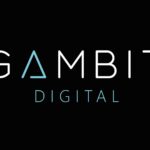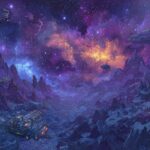The gaming industry is entering a new era where blockchain technology intersects with traditional game design. Central to this movement is Open Loot, a Web3 gaming distribution platform and marketplace designed to make blockchain-powered games as easy and accessible as Web2 titles.
Open Loot offers developers a comprehensive infrastructure, including fiat-to-crypto onboarding, KYC and compliance measures, integrated wallets, and a user-friendly marketplace. Players benefit from wallet-less access, gas-free transactions, and optional NFT ownership. The ecosystem is powered by the $OL token, which provides perks such as exclusive content, discounts, and access to its VIP program.
The platform has already supported successful launches, including Big Time, and continues to expand its curated lineup across various genres, from fantasy MMORPGs to cozy simulation games. Notable projects include WorldShards and Moonfrost, which showcase the diversity that Web3 can bring to the gaming landscape.
WorldShards: A Fantasy MMO with Community at Its Core
In a recent discussion with Roman Novikov, the team behind WorldShards shared their story and what sets them apart.
Q: Can you give us a quick introduction to your team and what inspired the creation of your game?A: “Our team consists of people who worked on World of Tanks, Allods Online, Legend: Legacy of Dragons, and other successful projects. WorldShards is inspired by those experiences and our passion for creating worlds people can immerse themselves in!”
Q: What makes WorldShards stand out in the Web3 gaming space compared to traditional titles?A: “Sheer quality. Most developers in Web3 prioritize investment over gameplay. We’re gamers first—building something we’d actually want to play.”
Q: How would you describe the core gameplay loop to someone new?A: “Think of it as an adventure. Explore islands and biomes, complete quests, meet cute cats and mythical creatures, all while collecting loot and tokens.”
Q: What’s your favorite feature or mechanic players should look forward to?A: “Multiplayer, hands down. When it’s fully live, it’ll be a game-changer—for both core gameplay and Web3 integration. Every adventure is better with friends.”
Q: Can you share a memorable playtest or early community story?A: “Our community constantly asks, ‘when wipe/TGE/fishing/etc?’ I adore that energy. Oh, and #JusticeforAshley—if you know, you know.”
Q: What kind of player will thrive most in WorldShards?A: “Anyone who loves classic fantasy MMOs and community-driven play. Home islands give each player a personal space to express themselves.”
Q: How do you see your community shaping the game’s future?A: “We’re an online game—our future depends on the community. Seeing players who’ve been with us since the first playtests is incredibly rewarding.”
Q: What events, activities, or collaborations can players expect?A: “Our collab with Big Time is just the start. More multiverse partnerships are coming—finally delivering on Web3’s true promise.”
Q: What excites you most about joining the Open Loot ecosystem?A: “Being part of something special. The OL family has the passion and experience to bridge hardcore gamers with crypto enthusiasts.”
Q: If you had one sentence to convince someone to join WorldShards today, what would it be?A: “Cats aren’t going to save themselves!” 🐱✨
Message to the community: “Thank you so much. We love you guys.”
End of Interview.
Moonfrost: Cozy Gaming Meets Web3 Innovation
On the other side of the spectrum is Moonfrost, a cozy farming and life simulation game with optional Web3 elements. Ric Moore, CEO of Oxalis Games, explained the vision behind the project.
Q: Can you give us a quick introduction to your team and what inspired the creation of your game?”We are Oxalis Games, we’re headquartered in the UK but our team is scattered around the world. It was founded by myself and Gina who’s been doing the art direction on Moonfrost.”
Q: What makes Moonfrost stand out in the Web3 gaming space compared to traditional titles?”Our team all come from the games industry, and our thinking from the beginning was that the best way to bring traditional gamers over to web3 is to try to make the best-in-genre game; one”
Q: How would you describe the core gameplay loop to someone new?”There’s a derelict village that needs restoring. It’s your job to bring it back to life. You do this through collecting resources, growing things, unlocking crafting recipes, crafting things and completing Order”
Q: What’s your favorite feature or mechanic that players should look forward to experiencing?”I personally liked Farm Royale the best from an earlier Alpha test. This is a co-op map where you compete with other players to open treasure chests. We’re planning to bring back this”
Q: Can you share a memorable playtest or early community story that showed you the game was resonating?”The metrics from the first Alpha were fantastic. We had 70% day 1 retention, and that was just as a regular game, no earning.”
Q: What kind of player do you think will thrive the most in your world?”We wanted to make a game that would appeal to both cozy gamers and web3 players. We hoped to bring the cozy gamers over to web3 but I think they are quite distinct audiences. For now we’re focusing on the web3″
Q: How do you see your community playing a role in shaping the game’s future?”The community has played an integral part all along. We have many helpers in our Discord and numerous content creators who have latched on just because they like the game. Our community remains very”
Q: What kinds of events, activities, or collaborations can players expect around launch and beyond?”We’re bringing back Farm Royale and House Hunters as live-ops events. In the past we’ve done a lot of collabs for whitelist places and getting early access, we’ll continue to do”
Q: What excites you the most about bringing your game to the Open Loot ecosystem?”Tapping into a new audience. The demographics of the community shifted when we joined. It used to be more traditional gamers, a more western audience. Now China and Brazil are the top 2 countries.”
Q: If you had one sentence to convince someone to join Moonfrost today, what would it be?”If you like cozy farming games give Moonfrost a go, it’s free-to-play and plays like a high-end indie game and the web3 aspects are optional.”
Q: Any special message you’d like to leave for the community?”Check @MoonfrostGame out if you haven’t already. It caters to a broader range of players, not just the rich.”
End of Interview.
Open Loot is proving that Web3 doesn’t have to be complicated to succeed. By offering infrastructure that feels familiar to Web2 players, while still providing blockchain-powered ownership and rewards, it has become a trusted platform for ambitious studios.
With WorldShards pushing the boundaries of fantasy MMOs and Moonfrost blending cozy gameplay with optional Web3 perks, Open Loot continues to demonstrate how diverse and player-focused the future of blockchain gaming can be.



This is an intriguing exploration of how blockchain is shaping the future of gaming. It’s exciting to see these innovations and their potential impact on the industry.
I agree, the blend of blockchain and traditional gaming indeed opens up new possibilities for player ownership and transparency. It’ll be interesting to see how developers adapt to these changes in gameplay and monetization.
Absolutely, it’s fascinating to see how this fusion could empower players with true ownership of in-game assets. It may also encourage more innovative game designs that leverage these unique features. Exciting times ahead for gamers!
I completely agree! It’s exciting to think about how this shift could also lead to new economic models within games, allowing players to earn from their skills and investments. The potential for player-driven economies might reshape the entire gaming landscape!
Absolutely! This shift not only opens up new economic models but also has the potential to empower players with true ownership of their in-game assets. It’ll be interesting to see how developers adapt to these changes in player expectations.
You’re right! The integration of blockchain can truly empower players by giving them true ownership of their in-game assets. This could lead to a more engaged community and innovative gameplay experiences. It’ll be interesting to see how developers adapt to these changes!
Absolutely! It’s fascinating how blockchain can also enhance transparency in gaming economies. This could lead to more equitable systems where players feel their contributions are fairly recognized.
is a great point! Transparency not only helps build trust among players but can also reduce issues like fraud and in-game currency manipulation. It’s exciting to think about how this could reshape player experiences and game development in the future.
Absolutely! Transparency can also encourage more players to engage with blockchain games, as they feel more secure in their investments. It’s fascinating to see how this shift might influence game development and player communities in the long run.
That’s a great point! Increased transparency not only builds trust but also allows players to better understand the value of their in-game assets. As blockchain technology continues to evolve, it could potentially open up new monetization avenues for developers as well.
Absolutely! Transparency can also lead to more innovative gameplay experiences, as developers can explore new monetization models that benefit both players and creators. It’s exciting to see where this intersection of blockchain and gaming will take us!
You’re right about transparency fostering innovation! It also encourages collaboration between players and developers, which can lead to more community-driven content. This shift could redefine how games are developed and enjoyed.
Absolutely, collaboration can lead to more diverse game development. With blockchain, players can have a say in game mechanics and economies, which could reshape how games are created and enjoyed. It’s an exciting time for both developers and gamers!
You’re right; collaboration really can enhance creativity in game development. Additionally, blockchain allows for true ownership of in-game assets, which could fundamentally change how players engage with and invest in their favorite games.
Absolutely! Collaboration not only enhances creativity but also allows for diverse perspectives that can lead to innovative gameplay mechanics. It’s fascinating to see how blockchain can create new economic models within games, potentially increasing player engagement and investment.
can lead to innovative solutions. It’s fascinating how blockchain can empower both developers and players, creating a more immersive experience. I’m excited to see how these interviews highlight new ideas in this evolving landscape!
Absolutely! The collaboration between blockchain and traditional gaming can also enhance player ownership of in-game assets, creating a more engaging experience. It’s exciting to think about how this could redefine player interactions and game economies!
You’re right! This collaboration could truly empower players by giving them more control over their in-game assets. It’s exciting to think about how this might change the way we view ownership and trading in games.
You’re absolutely right! It’s exciting to see how this collaboration could shift power to players. Additionally, the integration of blockchain could enhance transparency in transactions, making the gaming experience more trustworthy and rewarding for everyone involved.
Absolutely! The potential for players to truly own their in-game assets could really change the dynamics of gaming. It’ll be interesting to see how developers adapt their strategies in response to this shift.